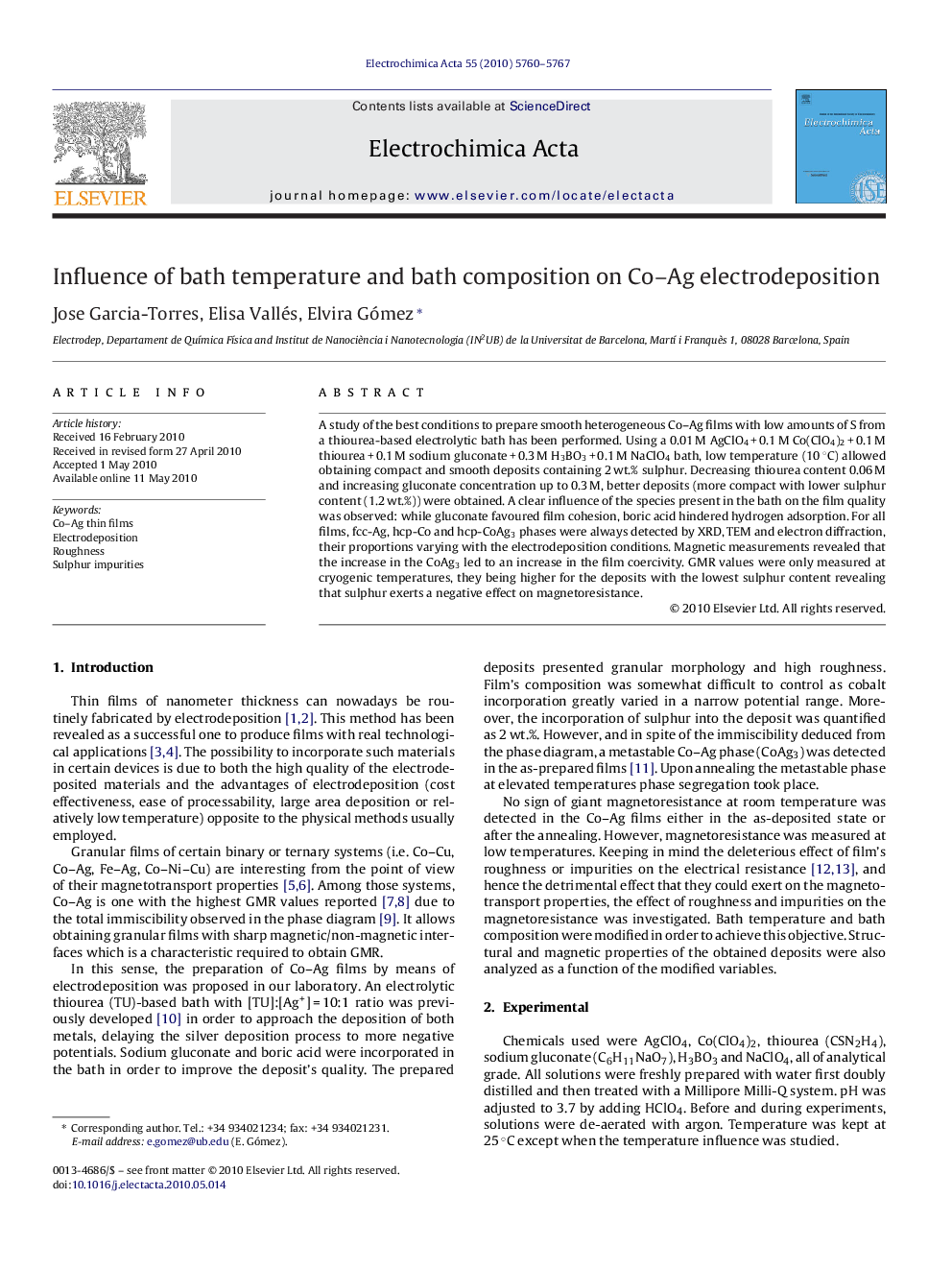| کد مقاله | کد نشریه | سال انتشار | مقاله انگلیسی | نسخه تمام متن |
|---|---|---|---|---|
| 191123 | 459715 | 2010 | 8 صفحه PDF | دانلود رایگان |

A study of the best conditions to prepare smooth heterogeneous Co–Ag films with low amounts of S from a thiourea-based electrolytic bath has been performed. Using a 0.01 M AgClO4 + 0.1 M Co(ClO4)2 + 0.1 M thiourea + 0.1 M sodium gluconate + 0.3 M H3BO3 + 0.1 M NaClO4 bath, low temperature (10 °C) allowed obtaining compact and smooth deposits containing 2 wt.% sulphur. Decreasing thiourea content 0.06 M and increasing gluconate concentration up to 0.3 M, better deposits (more compact with lower sulphur content (1.2 wt.%)) were obtained. A clear influence of the species present in the bath on the film quality was observed: while gluconate favoured film cohesion, boric acid hindered hydrogen adsorption. For all films, fcc-Ag, hcp-Co and hcp-CoAg3 phases were always detected by XRD, TEM and electron diffraction, their proportions varying with the electrodeposition conditions. Magnetic measurements revealed that the increase in the CoAg3 led to an increase in the film coercivity. GMR values were only measured at cryogenic temperatures, they being higher for the deposits with the lowest sulphur content revealing that sulphur exerts a negative effect on magnetoresistance.
Journal: Electrochimica Acta - Volume 55, Issue 20, 1 August 2010, Pages 5760–5767